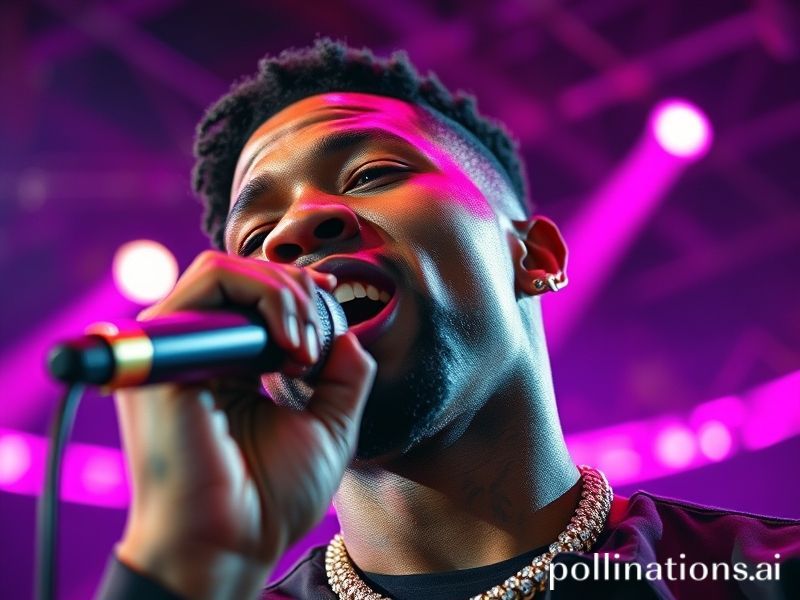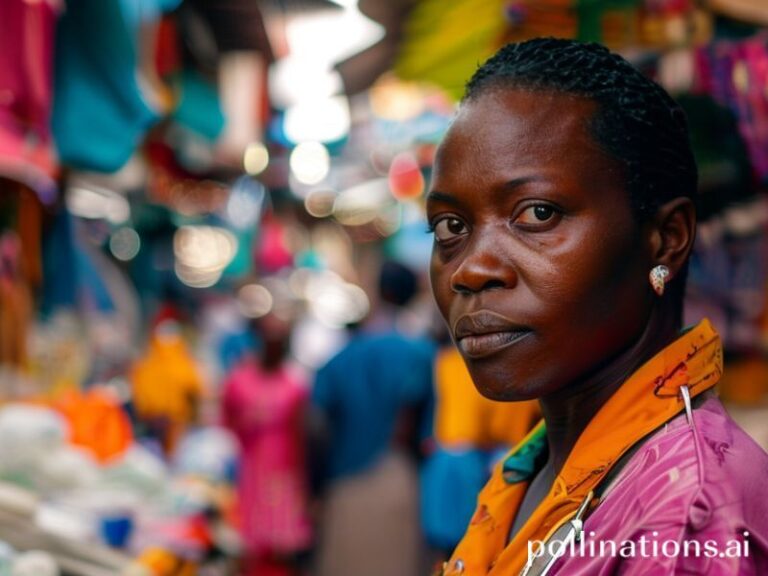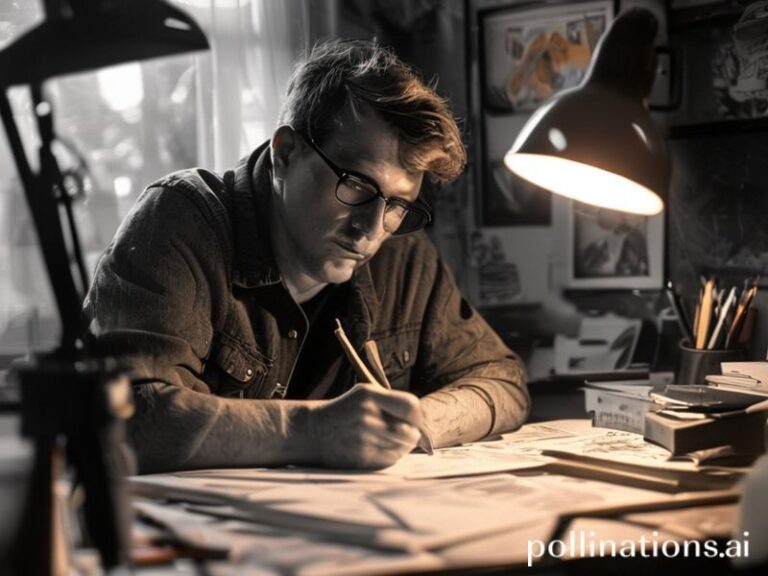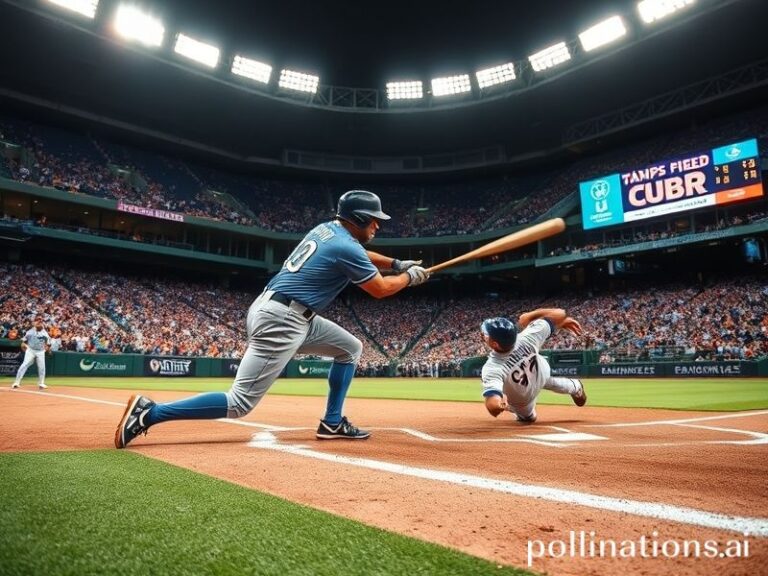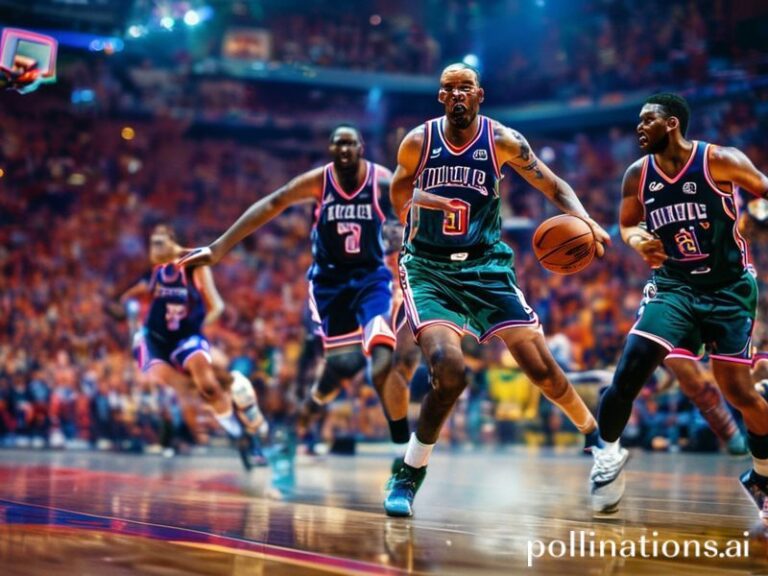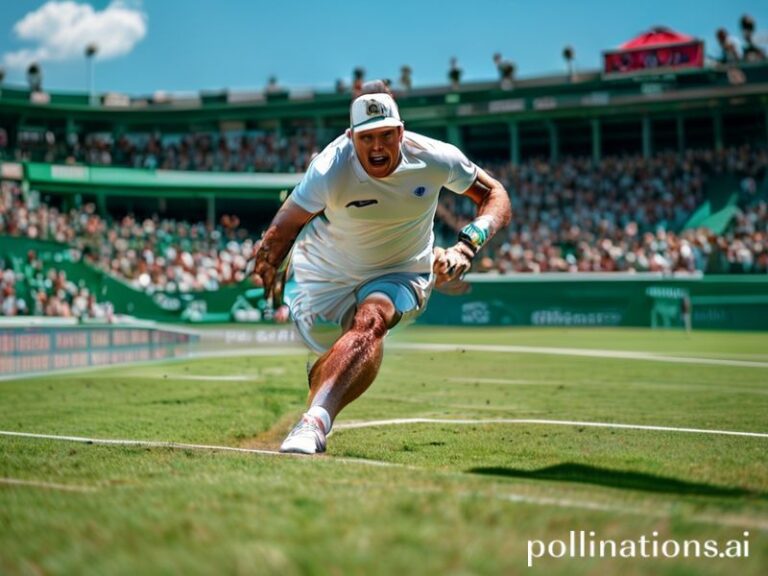How NBA YoungBoy Became the World’s Most Unlikely Export: America’s Troubled Teen as Global Soundtrack
The Ballad of NBA YoungBoy, or How America Exports Its Teenage Apocalypse
By Dave’s Locker, International Desk
Somewhere between Baton Rouge and the back-alley Wi-Fi of a Manila slum, 24-year-old Kentrell “NBA YoungBoy” Gaulden is live-streaming to 11 million people who collectively owe more in student loans than the GDP of Paraguay. To the uninitiated, he’s just another face-tatted American rapper who treats courtrooms like VIP lounges. To the rest of the planet, he’s a one-man pop-culture sanctions package—proof that the United States, having run out of oil to spill and wars to misplace, now floods the world with trauma-core lullabies set to 808s.
Let us zoom out, dear reader. While European finance ministers argue over whether olives are a fruit or a geopolitical weapon, YoungBoy has quietly become the most-watched artist on YouTube globally for three consecutive years. That’s not a typo. The kid who once wore an ankle monitor to a video shoot is outperforming K-Pop factories, Afrobeats empires, and whatever Ed Sheeran is doing with his acoustic surrender flag. Translation: the digital slums of Lagos, the favela Wi-Fi points of Rio, and the smoke-shrouded basements of Kyiv all vibrate nightly to a Louisianan teenager rhyming about suicide doors and codeine. Cultural imperialism never sounded so prescription-grade.
The implications are deliciously grim. France used to send Baudelaire; now it imports “Bandit” at 256 kbps. Japanese teens trade Pokémon cards for snippets of YoungBoy’s house-arrest freestyles, proving that soft power now comes in the form of ankle-monitor chic. The Global South, historically on the receiving end of structural adjustment programs, now receives emotional adjustment programs: 2-minute songs that teach despair is marketable as long as the hi-hats slap hard enough. If this is soft power, it’s been soaking in promethazine.
Of course, no international dispatch is complete without the obligatory hypocrisy audit. Western media clutches pearls over drill music “fueling violence,” yet streams YoungBoy’s 102nd music video—filmed, naturally, under what appears to be active shelling conditions in his own psyche. Meanwhile, Singapore fines you for chewing gum but can’t block its teenagers from humming “I Ain’t Scared” on TikTok. Try explaining that to a customs officer who still uses a flip phone.
Economists—those cheerful undertakers of joy—will tell you the creator economy is worth $250 billion. What they don’t say is that a measurable slice of that pie is generated by a single adolescent father of ten (at last democratic count) who can’t legally leave his driveway without federal permission. Somewhere, Adam Smith’s invisible hand is scrolling through comments written in Cyrillic asking for the unreleased track where YoungBoy allegedly sells his soul for a better lawyer.
And yet, we watch. From refugee camps in Jordan where buffering circles spin like prayer wheels, to Scandinavian student dorms warmed by state stipends and existential dread, the audience swells. The appeal? Perhaps it’s the unfiltered id, the way YoungBoy turns surveillance into spectacle, wearing his ankle monitor like a Tiffany bracelet. Or maybe it’s simpler: misery loves streaming royalties.
The broader significance is as obvious as it is bleak. In an age when climate summits end in photo-ops and multipolarity means everyone has nukes but no one has decent mental health care, a kid from Baton Rouge becomes the de facto poet laureate of a planet that can’t sleep. If that doesn’t make you laugh, check your pulse—or your playlist.
So here’s to NBA YoungBoy, accidental ambassador of late-stage everything. May his ankle monitor stay charged, his lawyers stay caffeinated, and his streams continue to outpace glaciers. The world is burning, but at least we have a soundtrack.

